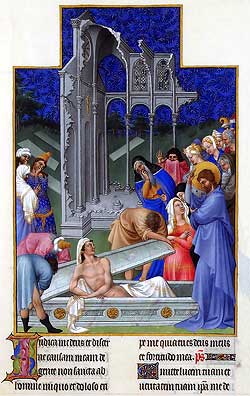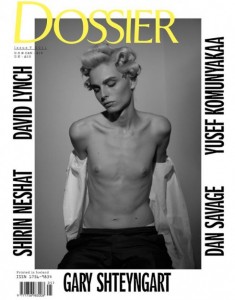I am the captain of my soul.
Margo MacDonald’s attempt to reintroduce legislation in the Scottish Parliament for killing off the sick was not unexpected (I blogged previously about it here) but is still unwelcome.
Doubtless this one will rumble on and on, but reading blogger Caroline Farrow’s harrowing account of her current problems reminded me of what autonomy is really like when exercised in a situation of illness and the imbalance of power that is built into a medical relationship. It also reminded me of a part of Stanley Hauerwas’ paper ‘Timeful friends: living with the handicapped’ (in the volume Sanctify Them in the Truth) which deals with what it’s like to exercise agency on behalf of the mentally handicapped:
…as every parent of the mentally handicapped knows, […] they are caught in what seems an irresolvable conundrum. In order for your child to receive appropriate care they must be labeled –retarded, handicapped, Down’s syndrome- but the labels can become self-fulfilling prophecies; or worse, the labels can legitimate the intervention of others into their children’s lives that often only benefits the agents of intervention. This becomes particularly troubling when the agent of intervention is an institution called the state.
The experience of trying to articulate needs in a vocabulary that is not yours and in a situation where all the power is held by another and you exist as a petitioner is not unusual. Moreover, there is a peculiar vulnerability where you are acting as advocate for another –a sick child or a sick, dependent relative- where there is a tendency on the part of authority to suspect a divergence between your interests as advocate and the real interests of the individual you claim to be acting for. Add to that a tendency to regard Christians as deluded and Catholics as particularly potty and you have the sort of experience described by Caroline:
So into the midwife’s room I trot with two children in full-on meltdown, eliciting lots of sighs and huffing and puffing. Can’t you get someone to look after them for you, she asked. I explain that they have been ill and so aren’t allowed in nursery. Don’t you have anyone else to help you she asks. No, I reply, I don’t. What about family? No – one set in Wales , the other in Oxfordshire and a sister with 4 children of her own in Northampton Brighton , I don’t have any close friends here, only having moved here a few years ago and then having to move house just having got to know a certain area.
Well you’re clearly struggling she said, life isn’t going to get any easier for you with another baby and three small children, are you sure that this is the wisest option? I don’t agree with abortion, I replied, so this isn’t a discussion that I want to have. Well, alright, fair enough, but I’m just very concerned for you. Thanks, I appreciate it, what I need is some help, do you think you might be able to arrange that for me? No, sorry, you’ll have to speak to the health visitor once the baby is born. […]
Tut, tut, tsk, tsk, tsk. All the while the children are in meltdown. There are no toddler toys in the consulting room because they constitute a risk of contamination. I am asked why I didn’t bring anything to entertain them. I explain that I was in a rush, it was a difficult morning and I was trying to rush out of the house as quickly as possible. Tsk, tsk tsk. Tut, tut, tut. Then – what are you going to do about contraception once the baby has been born. I explain that we are either going to abstain for as long as it takes or we are contacting the couple-to-couple league for a belt and braces method […] Tsk, tsk, tut, tut, tut. That is not good enough. Natural contraception just does not work. You cannot be in this situation again (as if I don’t know) what about sterilisation? I explain, briefly that contraception is out of the question for us as a couple. I don’t go into any detail, just explain that due to cultural beliefs we cannot use it. Well that’s ridiculous she says, you have to do something. I can’t, I tell her, it’s out of the question. Well in that case, I think I need to refer you to counselling. No, I don’t need counselling I tell her. Yes, you do she tells me, I have here in your notes that you suffer from ante-natal depression and there’s a huge risk of post-natal depression, unless you use contraception you are going to be very very ill and you need to understand that, as does your husband. Oh, he understands that alright, he understands that I am more than just a bit “sad” at the moment, but even IF I accepted what you are saying about contraception, which I don’t, if I get sterilised or use contraception behind my husband’s back, my marriage will be effectively over. We will never be intimate again and our marriage will be under huge strain. How will that help anyone, particularly the children? Well he needs counselling to make him understand. No, he doesn’t and nor do I, as a couple, contraception is OUR choice and OUR business, not for one person to hector another and given the situation, I hardly think we are going to take any future risks.
So it’s all a barrel of laughs so far.
Well, so what, I hear you ask? Pretty unpleasant experience, unsympathetic medical practitioner –what’s new?
Well, remember that it was only in 1930 that the Lambeth Conference allowed the use of contraception to manage fertility. Up till then, the view that contraception was immoral was mainstream. Moreover, the view that contraception was a bit iffy –not quite nice- survived much longer, certainly into the sixties and beyond. But now you have the situation where Caroline struggles to articulate what was once a mainstream view in a way that the midwife can understand –quite apart from accepting. (Note the understandable attempt to frame it as a ‘cultural belief’: much easier for the secular world to deal with cultural minorities rather than moral disagreement). Moreover, the sort of help available is now reduced to persuasion under the title of counselling rather than anything practical which might actually make a difference.
But no harm done, perhaps. Caroline wasn’t forced to compromise her position. Only a few hurt feelings then…
Now imagine a similar case of ‘assisted suicide’ thirty years down the line if Margo MacDonald gets her way. Imagine the cold, hard gaze of secular sanity confronted by a rather sad, clearly deluded believer in sky fairies. Imagine trying to frame your reasons for not wanting to spare your parent/child/spouse an agonizing death, where there exists an easy, pain free alternative. Imagine being offered counselling to bring you round to a sane point of view and where no other palliative treatment exists. (Why would it? It’s expensive and it’s irrational.) Imagine that, in the case of euthanasia, how much easier it is for a doctor to kill you than it is for a doctor to force you to use contraception.
This is what a slippery slope looks like. What was a possibility in 1930 becomes the irresistibly sensible in 2012.














